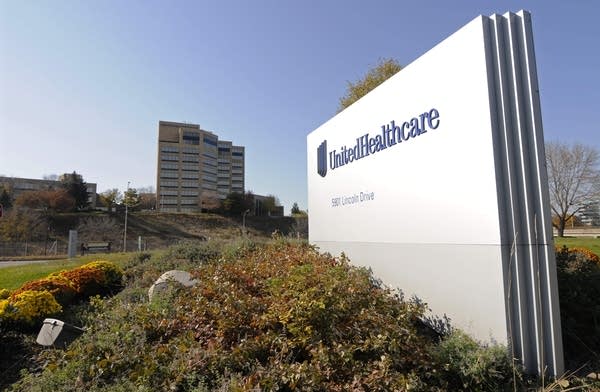Feds file another suit against UnitedHealth, detailing allegations of fraud

The federal government Tuesday fleshed out its allegations about alleged Medicare Advantage fraud by UnitedHealth Group, filing another lawsuit against the insurer.
Justice Department attorneys contend UnitedHealth engaged in a subterfuge since at least 2005 that gave the Minnetonka-based company over $1 billion in payments to which it was not entitled.
UnitedHealth is the nation's largest Medicare Advantage insurer. The program offers more benefits than traditional Medicare. The federal government gives participating insurers a monthly payment for each enrollee. The sicker someone is, the greater the payment from Medicare.
But the government says that in reviewing patient records, UnitedHealth reported additional health diagnoses that increased government payments while in "bad faith systemically ignoring" wrong diagnoses and other information that would decrease payments.
Create a More Connected Minnesota
MPR News is your trusted resource for the news you need. With your support, MPR News brings accessible, courageous journalism and authentic conversation to everyone - free of paywalls and barriers. Your gift makes a difference.
"As the nation's largest Medicare Advantage Organization, UHG (UnitedHealth Group) received substantial overpayments based upon untruthful and inaccurate information about the health status of those enrolled in its plans," said Acting U.S. Attorney James P. Kennedy Jr. for the Western District of New York in a statement. "Such fraudulent spending of taxpayer's dollars will not be tolerated."
UnitedHealth spokesperson Matt Burns said the company rejects the government's claims and will contest them vigorously.
"We are confident our company and our employees complied with the government's Medicare Advantage program rules, and we have been transparent with CMS about our approach under its unclear policies," he said in a statement. "We are confident in our robust payment integrity and compliance programs."
Prosecutors allege that UnitedHealth ignored information showing that hundreds of thousands of diagnoses provided by physicians and submitted to Medicare were not valid. The government says they did not support Medicare payments that the company had previously requested and obtained.
In addition, the government charges that the insurer ignored incorrect diagnoses from health care providers to which UnitedHealth provided financial incentives. Those providers received payments from UnitedHealth that were pegged to the payments that the company received from Medicare.
The Justice Department says UnitedHealth senior executives were aware of the diagnosis review program and its ability to greatly boost the company's revenue.
Over one six-year stretch, the reviews produced over $3 billion in additional payments from Medicare.
In fact, the government says senior executives set revenue targets for the the program. When it appeared the program would not hit revenue goals, the government says United Health "liberalized" its diagnosis coding policies.
The government case builds on a whistleblower lawsuit filed by Benjamin Poehling, the former director of finance for UnitedHealthcare Medicare & Retirement.
"He and some others within UnitedHealth Group were saying 'We have to look both ways. We have to be fair about this.' And they were shot down,'" said attorney Tim McCormack, who represents Poehling.
As of 2015, about 16.3 million Americans were in Medicare Advantage plans.
According to the government complaint, UnitedHealth had about 3.6 million beneficiaries in its Part C Medicare plans and about 8.6 million in Part D plans. For 2016, the insurer's Medicare program revenue was $56 billion.
Research by a government watchdog agency and investigative reports have found the government pays insurers way too much money due to inaccurate diagnoses reported by the companies.
According to a U.S. Government Accountability Office report last year, the Centers for Medicare & Medicaid Services itself estimated it improperly paid $14.1 billion in 2013 to Medicare Advantage insurers.
In 2014 the nonprofit Center for Public Integrity calculated that the feds made about about $70 billion in overpayments to Medicare Advantage insurers from 2008 to 2013.
But UnitedHealth says it's not possible to make accurate assertions about Medicare Advantage overpayments or underpayments because the federal government has not published diagnostic error rates for the original Medicare program.